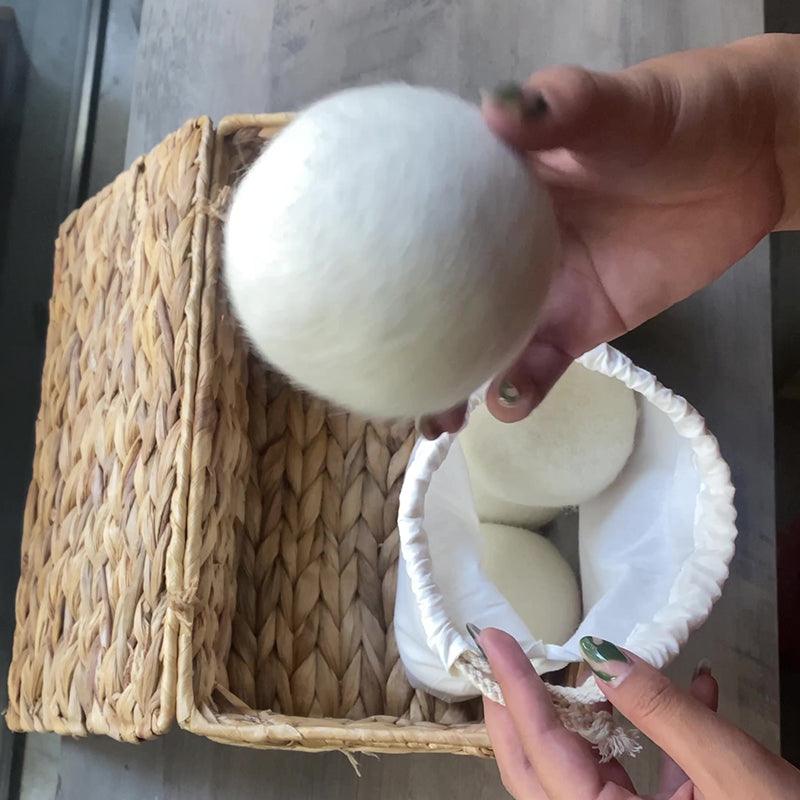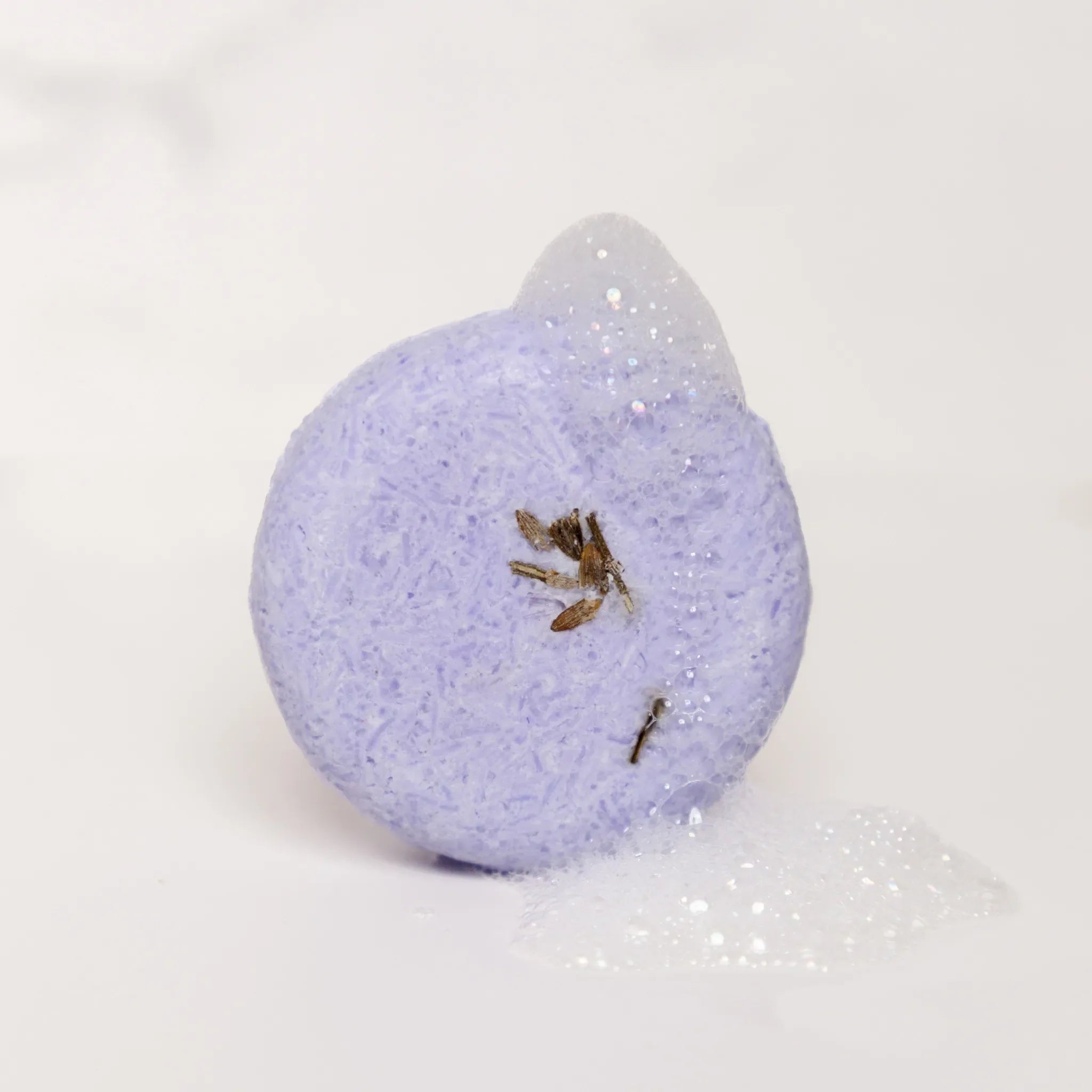We all want our laundry to smell good and feel soft. Dryer balls are an excellent substitute for dryer sheets. Dryer sheets are sprayed with fake perfumes and other dangerous chemicals. Dryer sheets are likewise non-reusable, with billions ending up in our landfills each year. Wool dryer balls, on the other hand, are made of wool and are entirely natural. Wool dryer balls also have the added benefit of shortening our drying time and lowering our energy use. They can also be reused and composted. If you want to read up on dryer balls vs dryer sheets check out our breakdown in our zero waste blog.
Why Should We Use Reusable Dryer Balls?
Dryer balls function by moving between and separating our garments, exposing more of our clothes to heat, and so decreasing drying times. Dryer balls not only help clothing dry faster, but they also pummel our garments as they spin, softening them and helping to straighten out creases. The increased airflow minimizes static electricity. Dryer balls are more environmentally friendly than dryer sheets because they are reusable. Furthermore, dryer sheets may include chemicals that may irritate delicate skin. Check out all the benefits of wool dryer balls.
What Distinguishes Wool Dryer Balls From Plastic Dryer Balls Or Tennis Balls?
Plastic dryer balls and tennis balls are both composed of plastic, which, once heated, can release harmful chemicals. Wool dryer balls, made of 100% wool, are completely natural. They are also much gentler on clothing and make less noise bouncing around the dryer than plastic balls.
How Effective Are They?
Wool dryer balls are heavier than plastic dryer balls, so they do a better job of breaking up our laundry. They're also absorbent, so they wick moisture away from garments better than their plastic equivalents. Wool dryer balls are preferred over plastic dryer balls by many people because they dry laundry faster.
How Much Do They Cost?
While plastic dryer balls appear to be less expensive at first glance, they end up costing us about the same in the long run. Plastic dryer balls are often smaller, which means we have to purchase more, which equalizes the cost in the long term.
How Much Noise Do They Make?
If we live in a tiny place, any extra noise from our dryer will grate on our nerves. Plastic dryer balls are unquestionably noisier than wool dryer balls. Wool dryer balls don't work silently, but they are significantly quieter than their plastic counterparts. To lessen noise from any type of ball, we should stack them with our laundry rather than simply placing them on top. This will assist in bringing the noise down to a more bearable level.
How Can We Use Dryer Balls to Make Our Laundry Smell Nice?
Wool dryer balls are typically marketed as being 100% natural and fragrance-free. This does not preclude them from being used to improve the smell of our clothing. Before using the wool balls, we can simply add a few drops of our preferred essential oils. Lavender, balsam fir, and eucalyptus work nicely and will leave our clothes smelling wonderful and fresh. Some wool dryer balls come with aromatic oils, giving you everything you need for scented laundry. It is critical to make sure we only use a few drops per dryer ball and let it dry (we don’t want any oil stains on our fabrics,) before using it in our laundry. On the other hand, most plastic dryer balls cannot be infused with essential oils.
How Long Will They Last?
In terms of how long we can use them, wool and plastic dryer balls are about equal. With wool dryer balls, we are able to refresh them and thereby extend their lives. How long reusable dryer balls last will really come down to how many loads we typically do. For example, wool dryer balls are good for 1000 uses, which means if we do 2 loads a week, they will last us about 10 years.
Which Is More Environmental?
Plastic dryer balls are manufactured from plastic, a man-made product derived from petroleum and natural gas. This means they are made from a non-renewable resource. Plastic can take hundreds of years to degrade, and even then, micro-plastics are a hazard in the oceans and food chain. Once plastic dryer balls stop working, they must be thrown away, taking up space in landfills for generations. Many plastic dryer balls are not made from recycled plastic and cannot be easily or affordably recycled. Curious how many dryer balls are required per load? Don't fret, at Seek Bamboo we have you covered.
Wool dryer balls are a natural, biodegradable product. They are frequently created by hand in accordance with fair trade norms. Once they are no longer of use, we can throw them in our compost pile, where they break down quickly. Plants in our garden love the water-retention abilities of wool.




